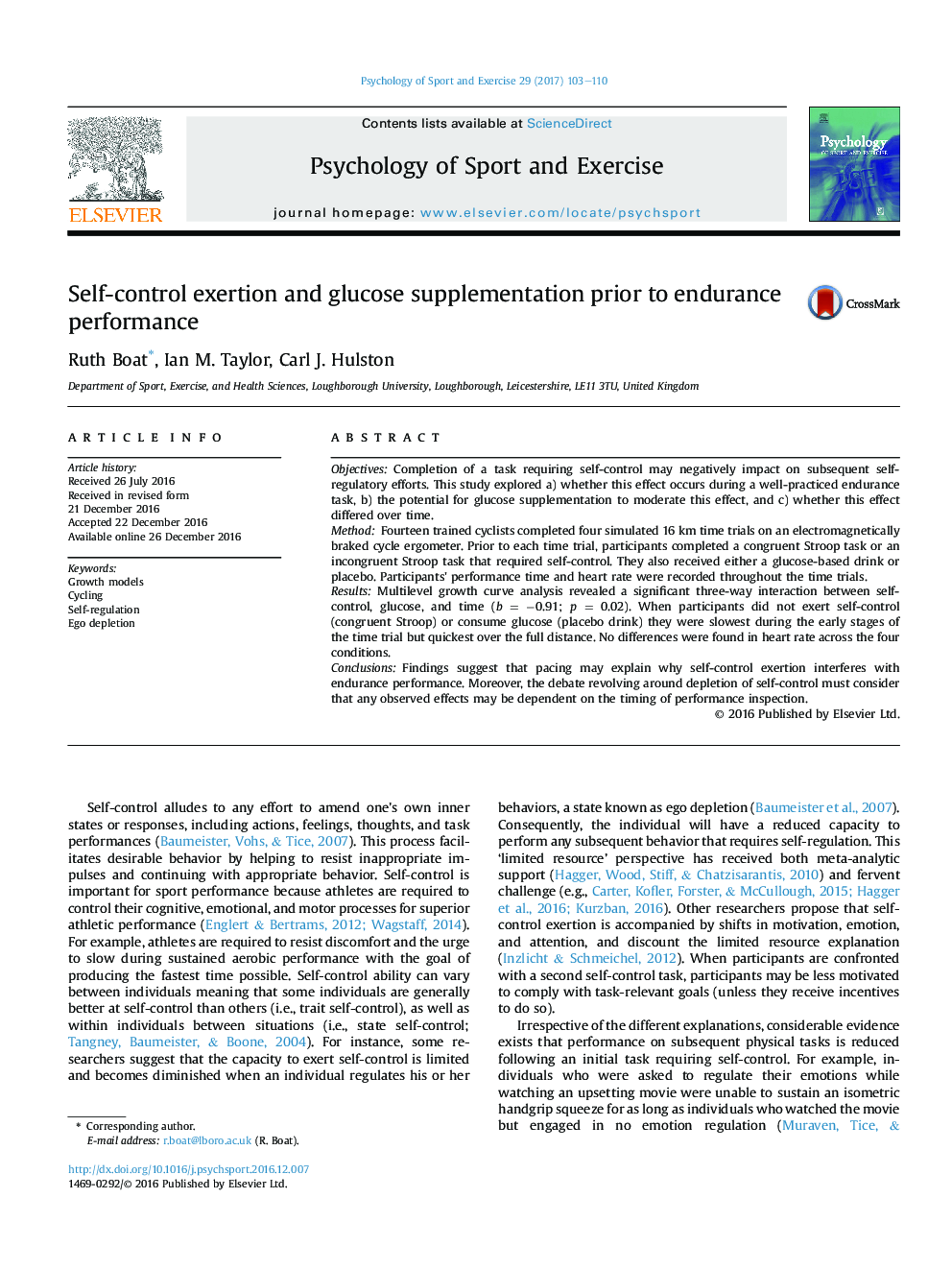| Article ID | Journal | Published Year | Pages | File Type |
|---|---|---|---|---|
| 5036540 | Psychology of Sport and Exercise | 2017 | 8 Pages |
â¢Exertion of self-control significantly reduced subsequent cycling performance.â¢Glucose administration did not attenuate any decrements in performance.â¢These observed effects may be dependent on the timing of performance inspection.â¢Prior self-control exertion may interfere with pacing during subsequent performance.
ObjectivesCompletion of a task requiring self-control may negatively impact on subsequent self-regulatory efforts. This study explored a) whether this effect occurs during a well-practiced endurance task, b) the potential for glucose supplementation to moderate this effect, and c) whether this effect differed over time.MethodFourteen trained cyclists completed four simulated 16 km time trials on an electromagnetically braked cycle ergometer. Prior to each time trial, participants completed a congruent Stroop task or an incongruent Stroop task that required self-control. They also received either a glucose-based drink or placebo. Participants' performance time and heart rate were recorded throughout the time trials.ResultsMultilevel growth curve analysis revealed a significant three-way interaction between self-control, glucose, and time (b = â0.91; p = 0.02). When participants did not exert self-control (congruent Stroop) or consume glucose (placebo drink) they were slowest during the early stages of the time trial but quickest over the full distance. No differences were found in heart rate across the four conditions.ConclusionsFindings suggest that pacing may explain why self-control exertion interferes with endurance performance. Moreover, the debate revolving around depletion of self-control must consider that any observed effects may be dependent on the timing of performance inspection.
